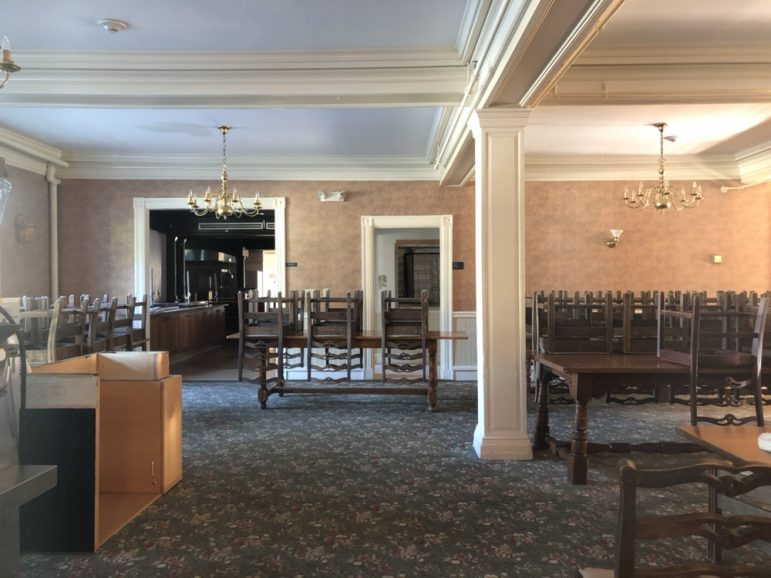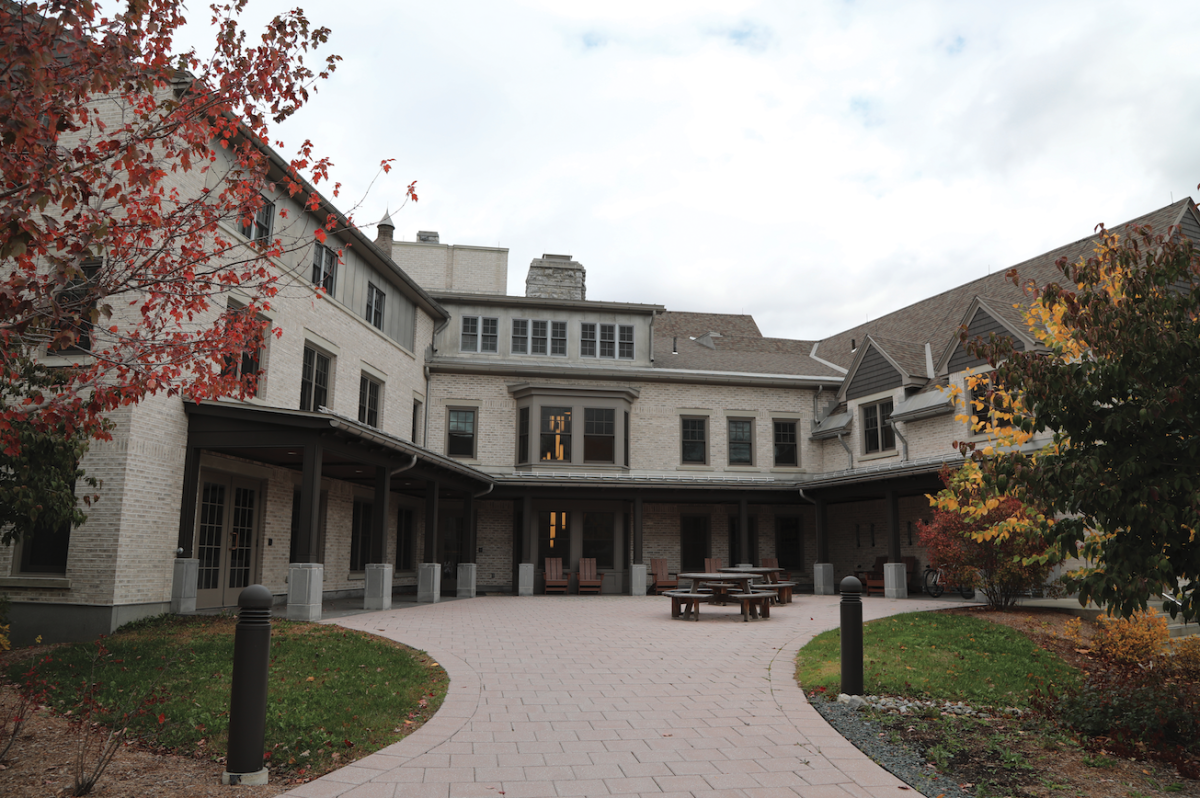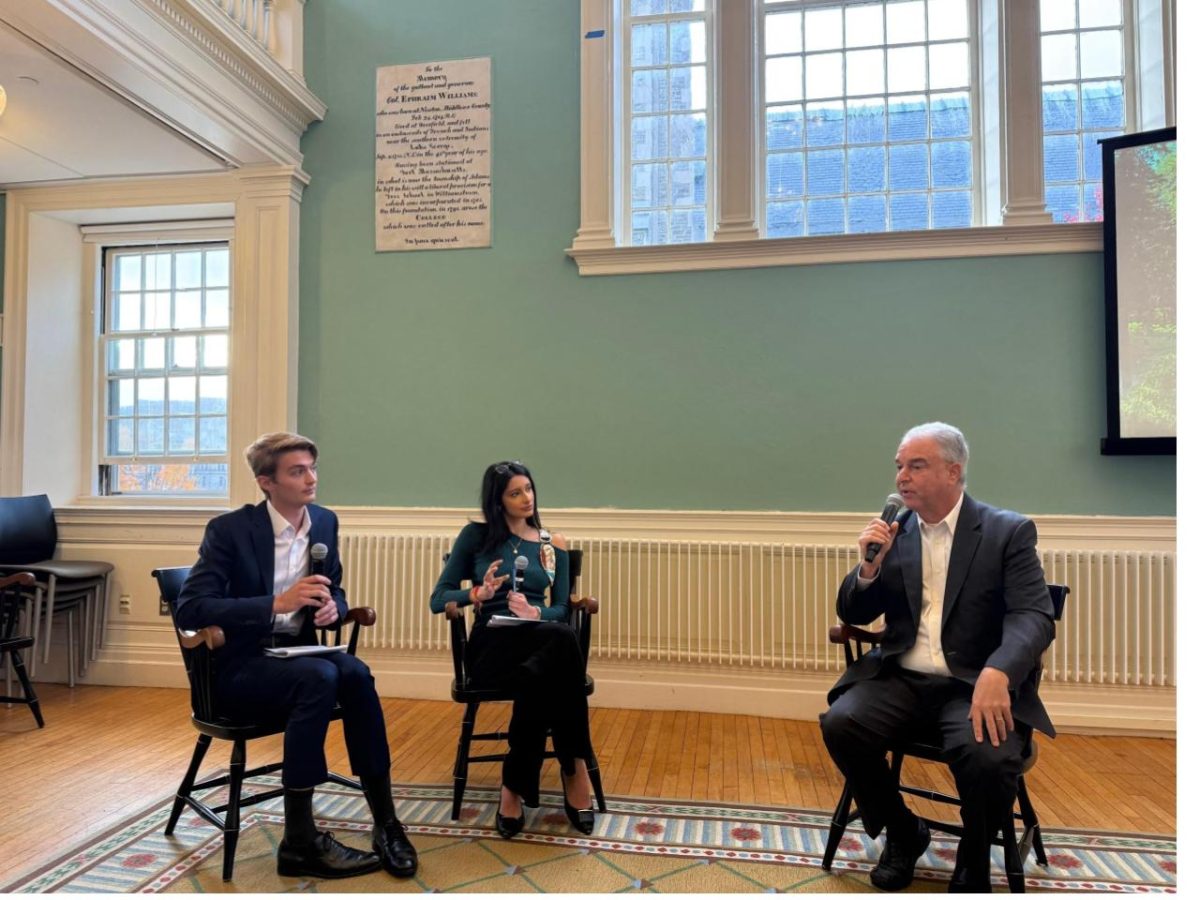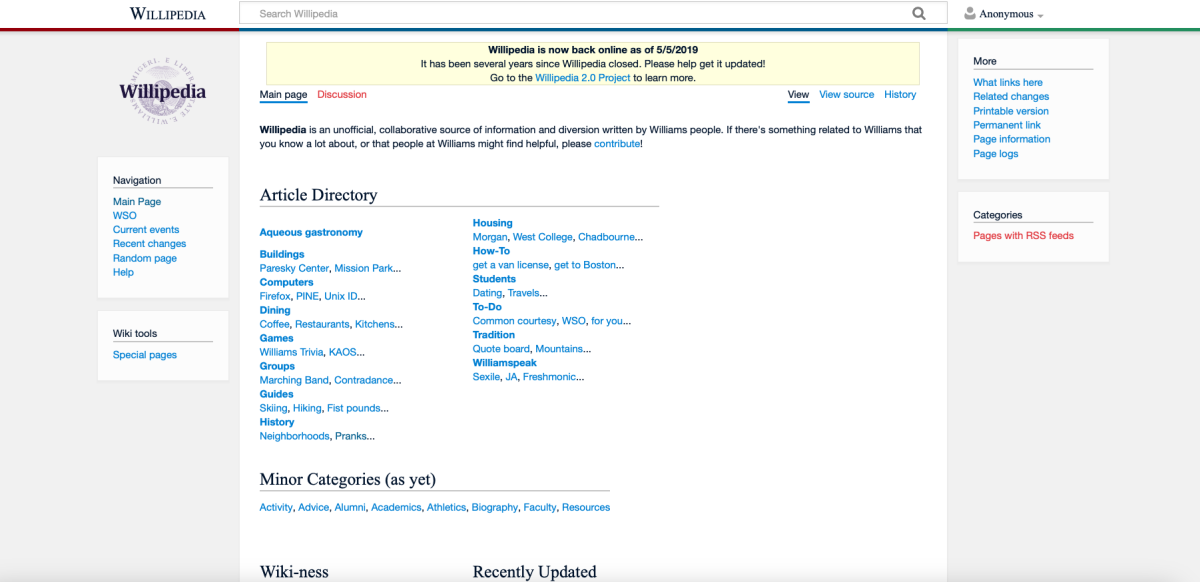
For most students on campus, the first full week of classes has also brought the first full week of freedom from quarantine. After remaining in their rooms until receiving confirmation of two negative COVID-19 tests, most students are now free to visit the entire campus. The College’s COVID Dashboard, which ticked up to three confirmed cases this weekend, remains a distant worry.
But for those three COVID-positive students, as well as the approximately 15 others whom contact tracers determined had been potentially exposed to the virus, the last few weeks have looked very different.
After receiving news of their tests or exposure, these students have been moved into separate housing, where many of them remain, in what amounts to the College’s first true test of its isolation procedures.
According to Treasurer and Vice President for Finance & Administration Fred Puddester, the first person to be notified when a student tests positive is Director of Medical Services Deb Flynn, who then notifies Northern Berkshire Emergency Medical Services (EMS), Campus Safety and Security, Dining Services and the student themself.
Northern Berkshire EMS, wearing full personal protective equipment, then transports the positive student to their room in either Tyler Annex or the Center for Development Economics building, both of which have been established as isolation housing. “That room is already stocked with food, it’s pre-stocked with food and linens, so they don’t have to bring their linens,” Puddester said. “They have to bring their books, their computer and their toiletries.”
After the initial transport, the student is virtually contacted every day by the Health Center to check on their welfare and symptoms. They are free to rejoin the rest of campus once they no longer test positive and have completed the full incubation period, which has already passed for one of the three students who tested positive.
However, a positive test will usually impact more people than just the infected student. The first positive-testing student did not expose any other student to the virus, but both subsequent cases were determined by a contact tracer to have had close enough contacts to necessitate quarantine procedures. In the second case, those on a College Motorcoach were quarantined; in the third, the student’s housing pod was exposed.
Puddester said that the contact tracing is done by specialized nurses who had been performing the same task for the community before students arrived. “They talk to the student and ask them the questions, and then they identify who they think the close contacts are based on their protocol,” he said. “Our job is to quarantine the students who are close contacts.”
Once a student is notified that they’ve been exposed to the virus, they are instructed to report to the Health Center for an immediate test, and then to Dodd House, which has been selected as quarantine housing. According to two students who were exposed on the Motorcoach, both of whom asked to remain anonymous, the transition to Dodd was a rocky one.
One of the students, who had arrived last Saturday, said that the initial directions they received were unclear. “They gave me vague instructions,” they said. “They were like, ‘There’s a chance you might have to move into Dodd tomorrow.’ They said that they were going to send me an email, but then I never got it.”
Because the email never arrived, the student didn’t know they were supposed to bring their belongings with them to their test at the Health Center, causing yet more confusion. When they finally did pack and move to Dodd, “there wasn’t anybody following me or making sure I was doing what I was supposed to do,” they said.
Another student reported further disarray in their quarantine transition process.. “I got a call from the public health nurse for Williamstown,” they said, “and she said, ‘I’m just letting you know that someone tested positive who was on your bus.’ And I was like, ‘Oh, okay, thanks for letting me know.’ And she didn’t really say anything about quarantine housing at all.”
“It wasn’t until Monday afternoon that I received another call,” they continued, informing them that they would in fact move to quarantine housing. “And it totally took me aback. My first question was, why are they telling me that now, after I’d been living with my podmates for a couple days.”
Since arriving at Dodd last Tuesday, both students have essentially experienced a longer version of the universal initial quarantine — albeit separate from their podmates, and with a bathroom located in their room. Until two days ago, even the meals were the same, with the identical rotation of three meals that other students received for their shorter stays in their rooms.
Puddester said that students now living in Dodd are “basically just remote students, and have all the access to all the services that any remote student has access to.”
But according to both students, the stay has been unpleasant in some ways. With even the bathroom located in-room and nowhere to go, the two weeks are passing slowly.
“Nobody has any sense of time — what is time?” one of the students wondered. “Going through the same food makes it even more surreal. It’s just the sun and the night and the moon keeping track of my days.”
The other student was more directly critical of the experience, though they noted that the College has many other concerns to worry about. “Anything you need while you’re in quarantine, it’s mostly up to you to take initiative and to reach out to administration or to reach out to faculty,” they said. “I wish that they had thought through more of the student life details of living in quarantine.”
Overall, Puddester said he was impressed with the level of rule-following among students, and that the College was grateful to have such a manageable caseload thus far.
“To have only three cases, several weeks in, when students came from all over the country and all over the world with lots of hot spots, was pretty remarkable,” he said. “It tells me that, when the dean asked everyone to be careful before you arrived, you were careful. Otherwise we could have seen many more cases.”
One of the quarantined students said that they also appreciated the measures the College has taken, even though they’ve been negatively affected because of them. “Even though I’m in quarantine, I really appreciate the school’s efforts to be protective,” they said. “I’m really glad that they’re doing this; I just wish it wouldn’t have happened to me.”














